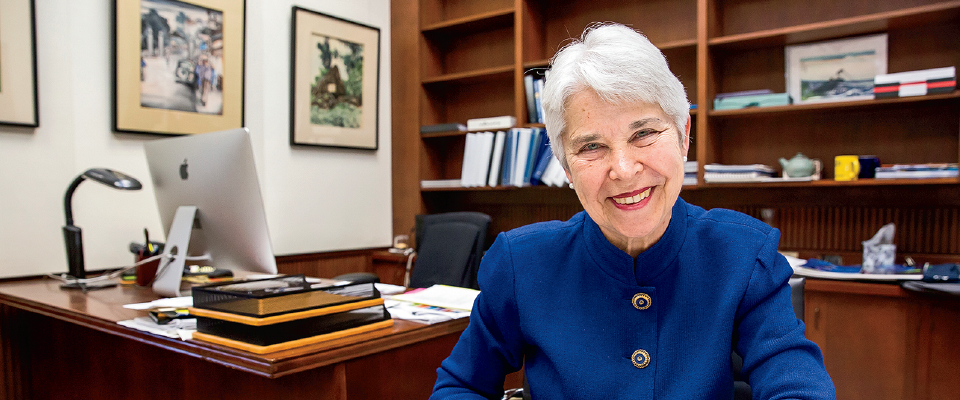What is your role in shifting campus culture to serve the needs of underrepresented communities?
It’s a role of influence. I love the work of Diversity, Equity, Inclusion, Belonging, and Justice (DEIBJ) because it touches every aspect of campus. Shifting the hearts and minds of folks is really important, and for us, we really do it with our Berkeley Hope Scholars, Cal Veteran Services Center, Educational Opportunity Program, Miller Scholars Program, Student Parent Center, and the Undocumented Student Program. These are spaces that weren’t historically built into institutions, and so I lead a division that does all of that.
What new developments are there in the equity and inclusion initiatives at Berkeley?
The opening of our new student community centers that allow us to position and center belonging are really important for building community and social connectedness. So, there’s our Latinx Student Resource Center, our Native Community Center, and we’re opening our Disability Cultural Center next month. We also have new state funding that is going to allow us to build the services that Berkeley started in so many ways across the UC. So, our Underground Scholars, our Undocumented Student Program, our Hope Scholars, and our Basic Needs Center. Every UC campus is going to have that because of our students and advocacy and moving it forward.
Does Berkeley have a strategy in place to recruit and retain student demographics that are underrepresented on campus?
We absolutely do. And they are so critical to the various initiatives that I’m charged with. It requires a lot of time and effort and intentionality. You are system shifting, things that have existed for centuries. It’s not only shifting the mindset of people reviewing the applications, but also shifting our students’ mindsets to recognize that they belong here. I want students to see themselves as contributing to Berkeley and not think that they got lucky to get in or that we made a mistake. And we know that hasn’t been the case. The onus of retention is not on the students. It’s on all of us in campus leadership.
UC Berkeley is in the process of being designated a Hispanic-Serving Institution, or HSI, by the Department of Education. Briefly, what is HSI, and how will that affect the university?
It’s a federal designation indicating that campuses have to have 25 percent of students who identify as Hispanic and 50 percent Pell eligible, meaning folks with modest means. As you know, federal designations often don’t reflect the unique culture of communities happening locally, and that’s why we shifted it to a Latinx-thriving context rather than that of Hispanic-Serving Institution. It’s really important to create that distinction for us and ensure that we move from the individual sort of “you check the box of this federal category” to the collective of building a space where everyone can thrive.
What is the goal behind applying for an HSI grant?
In a state like California that has the largest Latinx population, at about 40 percent, we need to do a better job of reflecting the communities in this state. Becoming an HSI but also becoming a Latinx-thriving institution ensures that we’re working together collectively in this space, in a place where we can truly say that the number one public research university is also the number one Latinx-thriving research university. So many of the UCs are in this effort. So there really is this collective power of the University of California system, of which Berkeley can help shape.





















